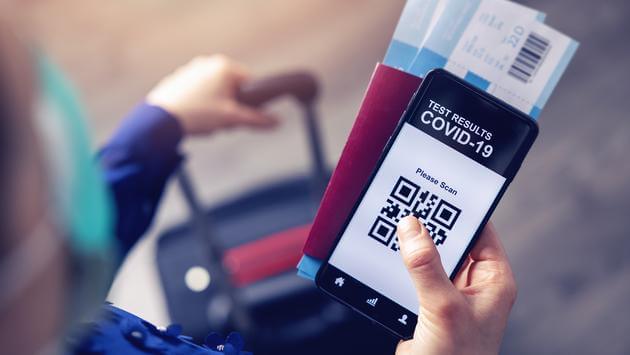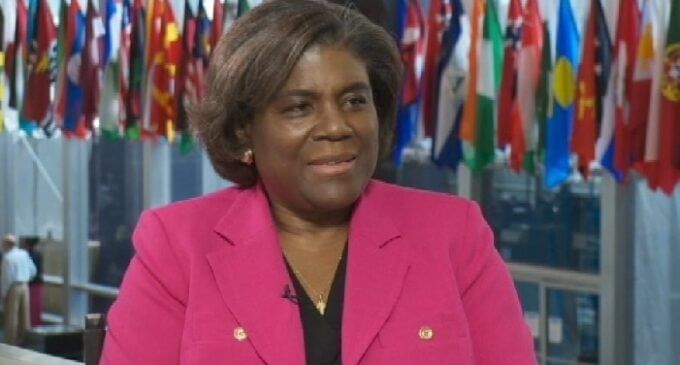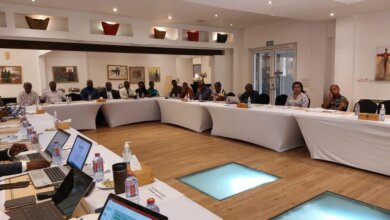Is the Omicron Travel Ban on Africa Discriminatory? African Leaders Air Views.

In an effort to limit the spread of the omicron strain, African leaders are fighting back against travel bans imposed by rich or Western nations.
The potentially more virulent Omicron COVID-19 form was first discovered in South Africa and is currently spreading over the world, according to reports. According to the World Health Organization, the variation has already been found in at least 48 countries since its discovery at the end of November (WHO)
Many European countries have reported cases, including Norway, where 19 Omicron cases were confirmed in Oslo following an office Christmas party — the biggest single outbreak outside of South Africa. Yet, the travel restrictions are aimed primarily at countries in southern Africa.
African leaders and public health authorities have reacted angrily to the prohibitions, claiming that they will cause more harm than good and discriminate against African countries.
Because of the new Omicron Covid type, the African Union continues to oppose travel restrictions for arrivals from particular African nations. The action, according to AU Commission Chair Moussa Faki Mahamat, has “no basis in science or common sense.”
The President of the African Development Bank Group (AfDB), Dr. Akinwumi Adesina, condemned the travel bans in a confrontational comment, saying:
“Now that omicron has been found in many non-African and developed countries, why are travels from those countries not banned? Why single out African countries? Singling out African countries is very unfair, non-scientific, and discriminatory. Lift bans on African countries!… Global vaccines’ and travel apartheid against Africa are endangering lives, hurting economies, lives, jobs and livelihoods, from a pandemic Africa did not cause. End the apartheid. Respect Africa!”
Nigeria became the latest African country to be sanctioned by the United Kingdom due to the spread of the virus on Monday. South Africa, Namibia, Zimbabwe, Botswana, Lesotho, Eswatini, Angola, Namibia, Mozambique, and Zambia are among the countries on the list of prohibited countries.
On Saturday, UK Health Secretary Sajid Javid announced a travel ban to Nigeria, saying that a considerable proportion of Omicron cases have been linked to travel to Nigeria.
However, with Southern Africa most hit by the restriction, South Africa, Botswana & AU leaders have lashed out at the ban, calling it a discriminatory threat to the African economy.
In an interview with CNN, South African President Cyril Ramaphosa expressed his disappointment, calling on Western nations to lift travel restrictions imposed on southern Africa to combat the omicron variant’s spread.
“The prohibition of travel is not informed by science nor will it be effective in preventing the spread of this variant,” he said.
WHO’s Africa director Matshidiso Moeti said on Sunday: “With the Omicron variant now detected in several regions of the world, putting in place travel bans that target Africa attacks global solidarity.”
Clayson Monyela, a spokeswoman for the foreign ministry, called their decision very unpleasant, quite unfortunate, and even tragic.
In an interview with CNN’s Zain Asher, Botswana President Mokgweetsi Masisi said the current travel restrictions imposed on African countries in reaction to the Omicron coronavirus type are unacceptable, and suggests what countries should have done instead. He described the restrictions as unacceptable, harsh, and degrading.
POSSIBLE EFFECTS OF THESE BANS ON AFRICA
On November 27th, the Biden administration in the United States began barring travel from eight southern African countries, including Botswana and South Africa. Non-citizens of the United States are prohibited from entering the country if they have spent the preceding two weeks in any of those nations.
Dr. Matshidiso Moeti, WHO regional director for Africa, asserted that South Africa and Botswana’s health officials should be commended for alerting the world to the existence of this new variant, rather than being penalized with travel bans.
Ten countries in southern Africa have been put on the United Kingdom’s “red list,” – a list of regions the government considers to be at high risk for new and emerging coronavirus strains. While the United Kingdom is not prohibiting these tourists from entering, they must undergo numerous coronavirus tests and be quarantined for at least 10 days.
Read Also World Bank says the Lack of COVID-19 vaccines for Africa is ‘Unacceptable’
In recent days, Canadian police have barred foreign nationals from crossing the border who had recently visited seven southern African countries.
In reaction to the variation, the European Union has asked member nations to curtail travel from southern Africa, and Japan, Australia, and Israel have banned all foreign passengers.
Mia Malan, editor-in-chief of the Johannesburg-based Bhekisisa Centre for Health Journalism, reacted to the restrictions. She believes that the prohibitions will dissuade countries, particularly those in low-resource areas, from reporting new coronavirus strains in the future.
Bans can prompt a “fear of discrimination, stigma and the fear that the economies would be hugely impacted by things like travel bans,” she said.
According to the World Bank, restrictions on mobility and travel during the COVID-19 pandemic had “severe” economic effects for Africa. In response to economic instability that experts predict will last for years, incomes have plunged and jobs have dried up.
Abeeb Lekan Sodiq is a Managing Editor & Writer at theafricandream.net. He is as well a Graphics Designer and also known as Arakunrin Lekan.





